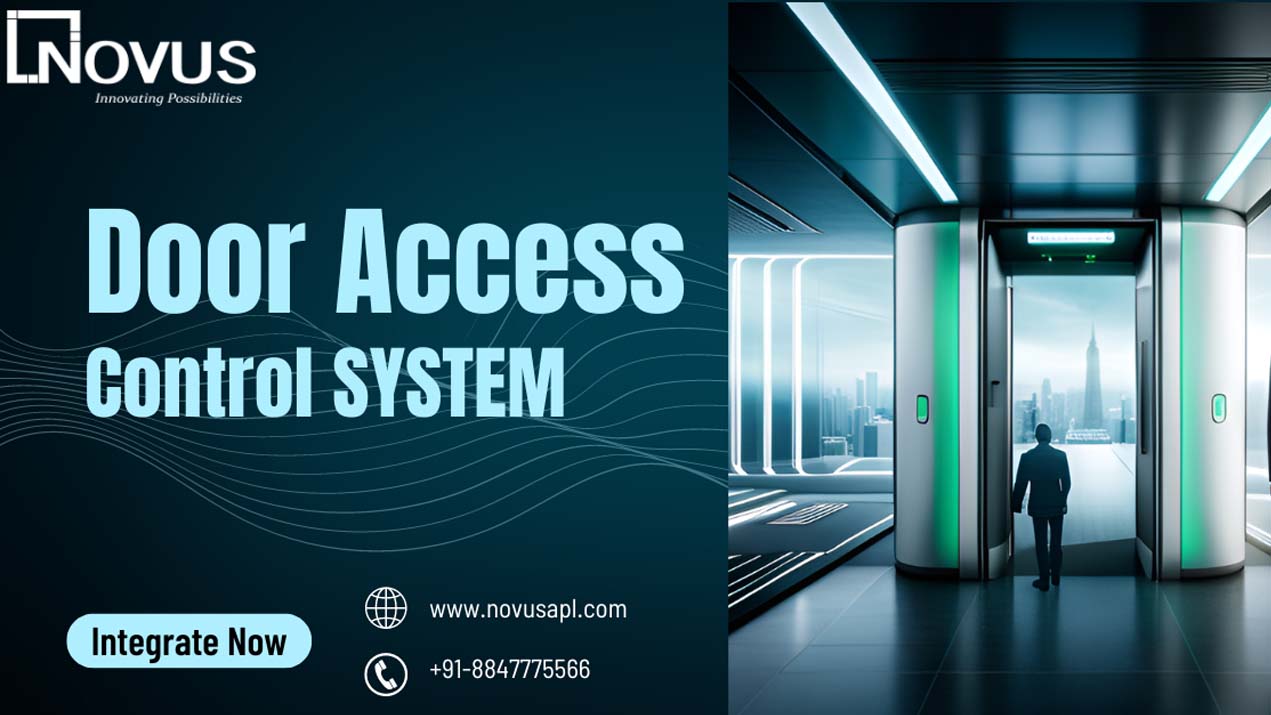
1) The Power of Access Control System in Enhancing Security and Convenience
2) The Problem of Traditional Methods
3) Components of Modern Access Control System
4) The Significance of Access Control System
In an exponentially growing digital and interconnected world, security has emerged as a main concern for organizations across industries. Whether dealing with valuable assets or sensitive data, safeguarding an organization's resources has become synonymous with ensuring its continued success. Among the various tools available for security, the access control system stands out as a versatile solution. Whether your workforce comprises a handful of individuals or spans a large team, an access control system can seamlessly accommodate their access needs while effectively preventing unauthorized entry.
Traditionally, mechanical keys have been employed as a basic form of physical access control . Although traditional systems are sufficient for smaller enterprises, the limitations of keys become noticeable as an organization grows. Here are some drawbacks associated with keys and the reasons why smart access control system is the superior choice:
Access control system has evolved into sophisticated solution that combines various technologies to provide seamless security. Here are some integral components commonly found within modern access control system:
The importance of access control system extends beyond the mere regulation of physical entry. It forms the basis of data, network, and information security, minimizing the risk of unauthorized access to sensitive systems and areas. In fact, access control system often serves as a compliance requirement for organizations, maintaining security standards.
Access control system finds application across various industries due to their adaptability and effectiveness. Some prominent sectors where access control system is invaluable include:
access control system has evolved from the basic use of mechanical keys to sophisticated, technology-driven solution . The advantages of such system ranging from enhanced security and audit capabilities to streamlined management and scalability have made them indispensable in today's infrastructure. As organizations continue to prioritize protection, efficiency, and compliance, access control system emerges as an essential tool to address these diverse needs.
An access control system is a technology that verifies identity before unlocking a door or restricted area, allowing only authorized individuals to enter and protect an organization’s assets.
Keys can be copied, lost or stolen, while access control systems prevent unauthorized entry with encrypted digital authentication and can instantly revoke access without replacing locks.
A credential such as a keycard, biometric or PIN is verified by a reader. The controller checks permissions and unlocks the entry point if authorized, logging the activity for security audits.
Essential components include readers, electronic locks, credentials, door sensors, access control panels and management software that centralizes access permissions.
They are used in offices, residential buildings, educational institutes, data centers, retail stores and other areas where controlled access and security compliance are required.
Yes. They can integrate with CCTV cameras, fire alarms, visitor management and attendance tracking systems for complete security automation.
Yes. Entry and exit records sync with attendance systems to improve workforce monitoring accuracy and productivity insights.
Organizations can limit access based on shifts, holidays or restricted times to reduce internal risks and maintain a secure environment at all hours.
Backup power ensures uninterrupted functionality, while fail-safe or fail-secure lock modes handle emergencies such as fire evacuation needs.
Yes. Cloud and network-based access systems allow easy expansion across multiple buildings without major infrastructure change.
Accelerate Your Business with Novus Automation
Become a Partner